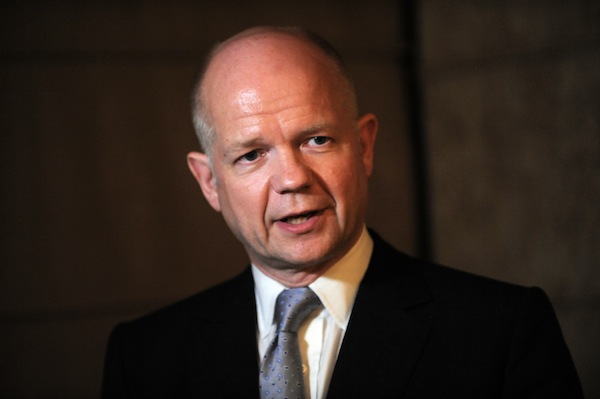Tory MPs clamouring for a new relationship between Britain and Europe were given an amuse-bouche today when William Hague announced a review into the impact of the EU on everyday life.
The Foreign Secretary told the House of Commons earlier that the review, which will report towards the end of 2014, ‘will present the evidence and analysis’, adding that it would be ‘for political parties to decide on their own policy recommendations’. The Foreign Office is briefing that the audit was not about identifying powers to grasp back from the EU, but many in the Conservative party certainly hope it’s the start of that process if nothing else.
A study by the Open Europe think tank in March found that 71 per cent of the £176 billion cost of regulation to the UK economy since 1998 originated from EU legislation. Obviously the UK government would have introduced some of those regulations if the EU hadn’t got there first, but these sorts of figures are instructive on the scale of the problem that eurosceptics hope to address.
What’s interesting about this is that there is already a group within the Conservative party making decisions on policy recommendations about which powers to repatriate. The Fresh Start Group launched their own ‘shopping list’ of powers to be repatriated this week, which presumably means their submission to Hague’s review will be sent in well before deadline. There are around 100 items on the list, including reform of the Common Agricultural Policy, opting out of what the group describes as ‘intolerable’ social and labour market legislation, and limits on increases in the EU budget.
The Liberal Democrats have managed to tie themselves in knots over this, though. On Tuesday, when the Fresh Start Group released its recommendations, Martin Horwood put out a press release in which he described it as ‘international blackmail’ which would damage the UK. But today another press release from Charles Kennedy described the official review as a ‘constructive and serious British-led contribution to the wider European debate’.
The question is whether the answers the government receives on this will actually make any difference to party policy, or whether it is just something to keep the clamouring rebels happy for the time being. It is not as simple as it might first appear to abolish the regulations that eurosceptics hate the most, as those that were once confined to the social chapter are now also tied up in the single market. The Tory leadership currently believes that the benefits of the single market currently outweigh the cost. So there’s a chance the hunger for change won’t be as easy to satisfy as it might first seem.







Comments